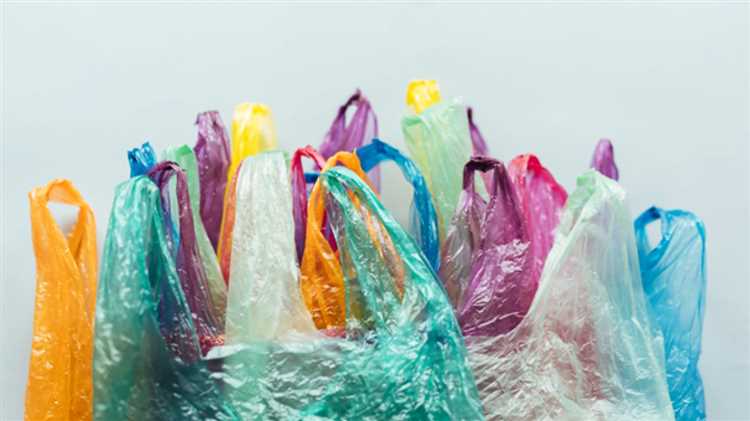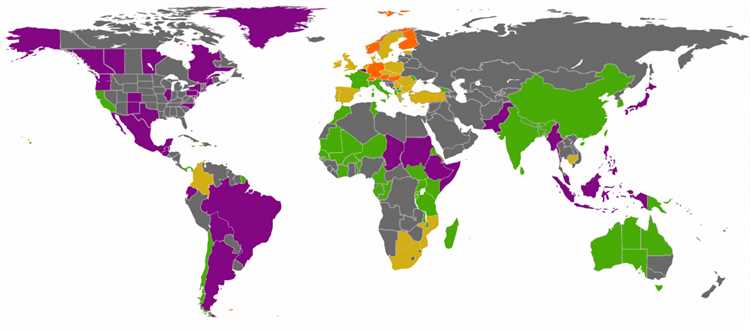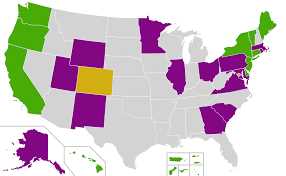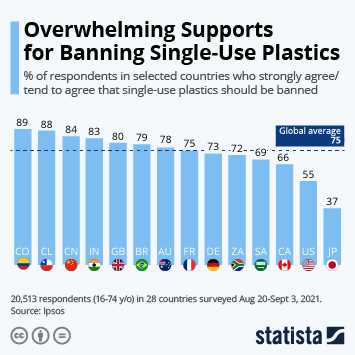In recent years, there has been growing concern about the impact of plastic waste on the environment. Single-use plastic bags have been identified as one of the major culprits, causing pollution and harm to wildlife. Many countries around the world have taken steps to address this issue, implementing bans or restrictions on the use of these bags.
One of the countries that has taken a strong stance against single-use plastic bags is Rwanda. In 2008, Rwanda became one of the first countries in the world to ban the use of these bags, and it has continued to enforce this ban ever since. The government has implemented strict regulations and penalties to discourage their use, and has actively promoted the use of biodegradable alternatives.
Rwanda’s ban on single-use plastic bags has been highly successful in reducing plastic waste and improving the environment. It is a shining example of how a small nation can take big steps towards a greener future.
- Which Country Has Banned Single-Use Plastic Bags?
- Plastic Bag Bans Around the World
- Rwanda
- Kenya
- France
- Italy
- India
- Taking the Lead: Rwanda’s Ban on Plastic Bags
- A Bold Move
- Achieving Results
- A Paradigm Shift: Kenya’s Strict Regulations
- European Union’s Approach: Phasing Out Plastic Bags
- Directive Requirements
- Results and Impact
- Question-answer:
- Which country has banned single-use plastic bags?
- Why did France ban single-use plastic bags?
- What are the alternatives to single-use plastic bags in France?
- Have other countries also banned single-use plastic bags?
- Is there a global movement to ban single-use plastic bags?
- Why are single-use plastic bags harmful to the environment?
Which Country Has Banned Single-Use Plastic Bags?

Plastic pollution has become a global environmental issue, and many countries are taking steps to address it. One effective way to reduce plastic waste is by banning single-use plastic bags.
One country that has taken a strong stance on this issue is Kenya. In 2017, Kenya implemented one of the world’s strictest bans on single-use plastic bags. The Kenyan government imposed heavy fines and even imprisonment for the production, sale, or use of plastic bags. This bold move was aimed at protecting the country’s natural resources, including its wildlife and fragile ecosystems.
Another country that has banned single-use plastic bags is Rwanda. In 2008, Rwanda became one of the first countries in the world to implement a complete ban on plastic bags. The government recognized the negative impact of plastic bags on the environment and decided to take proactive measures. Today, Rwanda is known for its cleanliness and is often praised as a role model for other countries.
In Bangladesh, the use of plastic bags has been entirely banned since 2002. The government took this step after realizing that plastic bags were clogging drainage systems and causing devastating floods during the monsoon season. The ban has been successful in reducing plastic waste and improving the country’s overall environmental conditions.
Other countries that have banned single-use plastic bags include Morocco, Tanzania, and Papua New Guinea. These countries have recognized the importance of protecting the environment and have implemented strict regulations to combat plastic pollution.
While these countries have demonstrated the effectiveness of banning single-use plastic bags, there is still a long way to go. It is crucial for more countries to follow in their footsteps and take action to reduce plastic waste and protect the planet for future generations.
By implementing such bans, countries are sending a strong message to the world about the urgency of tackling the plastic pollution problem. It is hoped that more countries will join the fight and take decisive steps to protect the environment and preserve the planet’s natural beauty.
Plastic Bag Bans Around the World

Plastic pollution has become a global crisis, and many countries are taking steps to tackle this issue. One effective measure is the ban on single-use plastic bags. Here are some countries that have implemented plastic bag bans:
Rwanda
- Rwanda was one of the first countries to ban plastic bags in 2008.
- The ban includes single-use plastic bags and prohibits their production, importation, sale, and use.
- Rwanda’s strict laws have resulted in a cleaner environment and reduced plastic waste.
Kenya

- Kenya introduced a ban on plastic bags in 2017.
- The ban applies to the production, sale, and use of plastic bags.
- Violators can face hefty fines or even imprisonment.
France
- France banned single-use plastic bags in 2016.
- The ban was implemented to reduce litter and encourage the use of reusable alternatives.
- Retailers are required to provide bags made from biodegradable materials or ones that can be reused.
Italy
- Italy introduced a nationwide ban on plastic bags in 2011.
- The ban was gradually phased in, starting with thin plastic bags, and later extending to thicker ones.
- Italy has also placed restrictions on the use of non-biodegradable bags for packaging fruits and vegetables.
India
- In 2016, India implemented a ban on the manufacture, sale, and use of plastic bags below a specified thickness.
- Several states in India have also taken additional measures to prohibit the use of all plastic bags.
- The ban aims to reduce plastic waste and protect the environment.
These are just a few examples of countries that have implemented plastic bag bans. Many other countries around the world are also taking similar actions to address the plastic pollution problem. These bans have proven to be effective in reducing plastic waste and promoting the use of sustainable alternatives.
Taking the Lead: Rwanda’s Ban on Plastic Bags
Rwanda has emerged as a global leader in the fight against plastic pollution by implementing one of the world’s strictest bans on single-use plastic bags. The country’s progressive approach has been hailed as a sustainability success story, as Rwanda has effectively reduced plastic waste and promoted a cleaner and healthier environment.
A Bold Move
In 2008, Rwanda took a bold step by implementing a nationwide ban on plastic bags. The government recognized the detrimental impact of plastic bags on the environment, particularly on soil and water resources. This ban not only prohibited the manufacturing, importation, sale, and use of plastic bags but also introduced stringent penalties for non-compliance.
Rwanda’s commitment to the environment was further illustrated through the establishment of Umuganda, a monthly community cleanup day that encourages citizens to actively participate in keeping the country clean and litter-free. This collective effort has fostered a sense of responsibility and pride among Rwandans, contributing to the success of the plastic bag ban.
Achieving Results
The ban on plastic bags has had a significant positive impact on Rwanda’s environment. It has resulted in a drastic reduction in plastic waste, preventing it from polluting rivers, landfills, and other natural habitats. Additionally, the ban has led to increased use of reusable bags and alternative packaging solutions, fostering a culture of sustainability and innovation.
Rwanda’s proactive stance on plastic pollution has inspired other countries to follow suit and implement similar bans. Its success serves as a testament to the power of government commitment and citizen participation in achieving sustainable change.
A Paradigm Shift: Kenya’s Strict Regulations
In a bold move towards combating plastic pollution, Kenya has implemented some of the most stringent regulations on single-use plastic bags. The country’s government has firmly committed to tackling the environmental problems caused by these bags, which are notorious for their contribution to land and water pollution.
Kenya’s approach involves a complete ban on the production, importation, and use of plastic bags. This strict regulation has been in effect since 2017 and has had a significant impact on reducing plastic waste in the country. The ban applies to all types of plastic bags, including those used for shopping, packaging, and waste disposal.
One of the key reasons behind Kenya’s decisive action is the recognition of the devastating effects of plastic bags on the environment. These bags are known for their slow decomposition rate, often taking hundreds of years to break down. As a result, they end up clogging drainage systems, polluting water bodies, and posing a threat to marine life.
The enforcement of the ban has been a joint effort between the government and other stakeholders, including non-governmental organizations and the private sector. Public awareness campaigns and educational programs have played a crucial role in changing societal attitudes towards plastic bags and promoting sustainable alternatives.
Kenya’s success in implementing these strict regulations has not come without challenges. Initially, there was resistance from manufacturers and consumers, who faced disruptions in their daily routines. However, the government’s commitment and effective enforcement have gradually led to a shift in mindset and behavior.
Today, Kenya serves as a model for other countries looking to adopt similar measures. Its success in reducing plastic pollution demonstrates that with strong political will and collective action, it is possible to bring about positive change and protect the environment for future generations.
European Union’s Approach: Phasing Out Plastic Bags
The European Union (EU) has taken a proactive approach in reducing the use of single-use plastic bags. In 2015, the EU introduced a directive to member states, which aimed to reduce the consumption of lightweight plastic carrier bags.
Directive Requirements

The directive required EU member states to take measures to reduce the consumption of plastic bags. These measures included:
- Setting national consumption reduction targets
- Implementing measures to achieve these targets
- Ensuring the use of price instruments, such as taxes or levies, on plastic bags
- Informing consumers about the negative impacts of plastic bags and the benefits of using alternative options
Member states were given the flexibility to choose the most appropriate measures to achieve the desired outcomes.
Results and Impact
The EU’s directive has shown positive results in phasing out plastic bags. According to the European Commission, the consumption of plastic bags in the EU dropped by more than 80% in the years following the directive’s implementation.
EU member states have implemented various initiatives to reduce plastic bag consumption, such as introducing charges for plastic bags or banning their distribution altogether. For example, Belgium, Ireland, and France have successfully implemented plastic bag bans, resulting in significant reductions in their usage.
| Country | Year of Plastic Bag Ban | Reduction in Bag Consumption |
|---|---|---|
| Belgium | 2007 | 94% |
| Ireland | 2002 | 90% |
| France | 2016 | 86% |
The success of these initiatives has inspired other countries and regions to follow suit and implement similar policies to reduce single-use plastic bag consumption. The EU’s approach serves as a model for other nations to tackle the global plastic waste crisis.
Question-answer:
Which country has banned single-use plastic bags?
The country that has banned single-use plastic bags is France. They implemented the ban in July 2016.
Why did France ban single-use plastic bags?
France banned single-use plastic bags in order to reduce plastic pollution and promote more sustainable alternatives. The ban was implemented as part of their efforts to combat climate change and protect the environment.
What are the alternatives to single-use plastic bags in France?
In France, people are encouraged to use reusable bags made of fabric or other durable materials. Many supermarkets and stores offer these bags for sale, and some even provide incentives for customers to bring their own bags.
Have other countries also banned single-use plastic bags?
Yes, several other countries have also implemented bans or restrictions on single-use plastic bags. Some examples include Italy, Germany, and the United Kingdom. These countries have recognized the environmental impact of plastic bags and are taking steps to reduce their use.
Is there a global movement to ban single-use plastic bags?
Yes, there is a growing global movement to ban single-use plastic bags. Many countries, cities, and companies are recognizing the need to reduce plastic waste and are implementing measures to encourage reusable alternatives. This includes efforts to raise awareness, change consumer behavior, and improve recycling and waste management infrastructure.
Why are single-use plastic bags harmful to the environment?
Single-use plastic bags are harmful to the environment because they take hundreds of years to decompose. They often end up in landfills and oceans, where they pollute the water and pose a threat to marine life. Additionally, the production of these bags contributes to the depletion of fossil fuels and the emission of greenhouse gases.